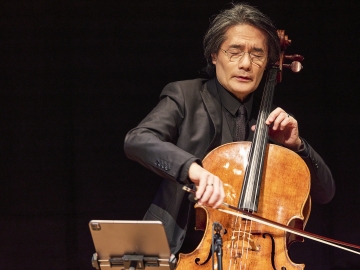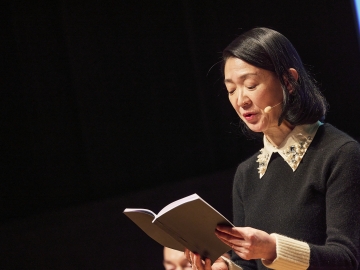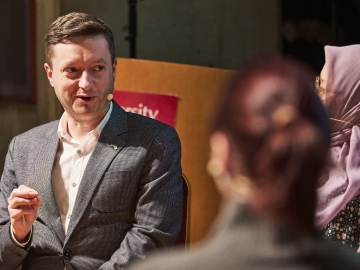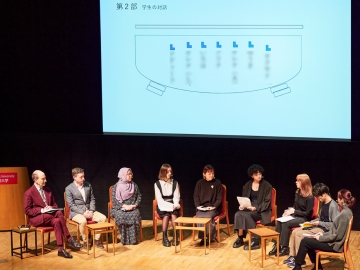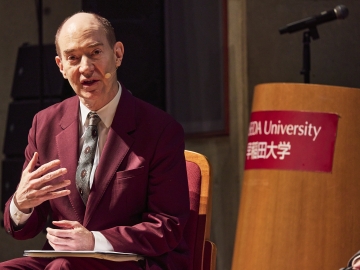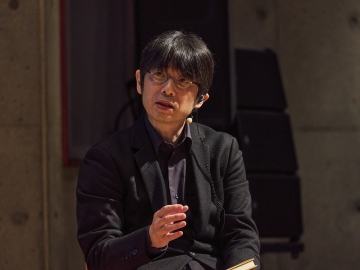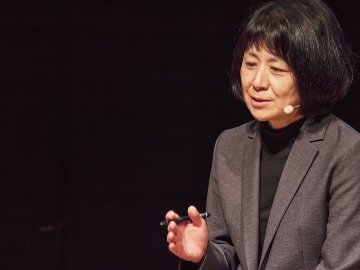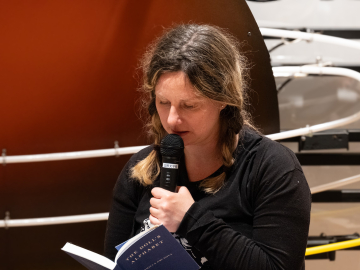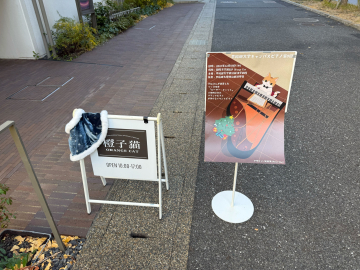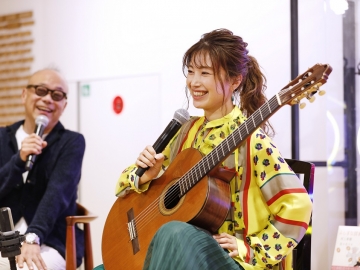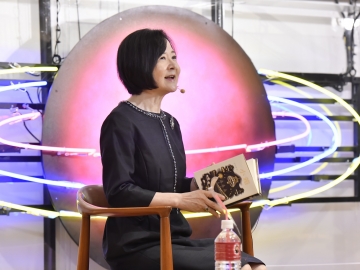Tokyo, January 18, 2024 – The Waseda International House of Literature (The Haruki Murakami Library) partnered with the Japan Foundation, hosted a transformative forum at the Masaru Ibuka Auditorium, Waseda University.
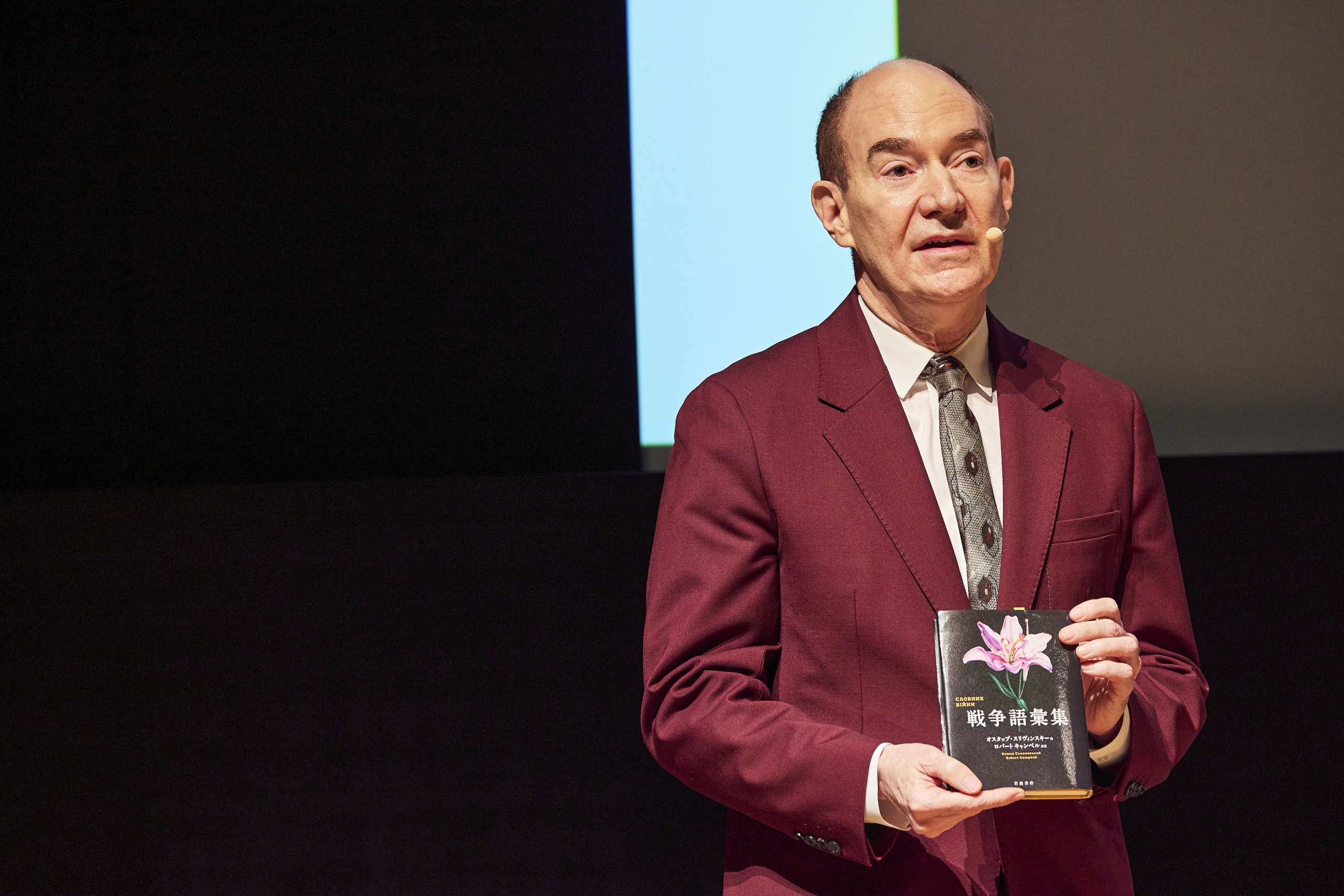
The event, titled “That is How We Have Survived,” gathered around 330 attendees, offering them intimate insights into the lives of Ukrainian refugees. It also sheds light on how conflict reshapes language, identity, and community.
Opening Remarks and Haruki Murakami’s Reflections
The forum commenced with an address by President Kazuyoshi Umemoto of the Japan Foundation, who emphasized the unique opportunity to hear directly from those affected by the war in Ukraine. The event centered around The Dictionary of War, a collection of testimonies gathered from evacuees and former soldiers by author Ostap Slyvynsky and eloquently translated by University Professor Robert Campbell. These narratives, presented in both Ukrainian and Japanese, served as a poignant reflection on the human condition amidst chaos.
A highlight of the opening was the sharing of Haruki Murakami’s thoughts, translated by Campbell, which delved into the inherent cruelty of war contrasted with the unexpected beauty emanating from the expressions of those who are victimized by conflict.
“War itself is endlessly cruel… But I’ve also been surprised and deeply moved by the beauty of the words of war gathered together here, spoken by men and women engulfed in the flames of conflict, each clear and candid as a poem.” Murakami’s message set a reflective tone for the proceedings.
Multisensory Experience and Personal Testimonies
The forum’s multisensory approach worked to elevate the personal testimonies beyond mere auditory experiences. As the readings from The Dictionary of War were presented live by three Waseda University students, along with the author himself and actress Misako Konno, the audience was immersed in a vivid narrative landscape. Their readings, set against a backdrop of carefully selected black, white, and yellow visuals and music by cellist Hajime Mizoguchi, engaged the sense of sight and sound, demonstrating layers varying from stark depictions of bombs to serene images of clouds. This live, integrated experience transcended what one might feel when reading alone, as it brought the stories into a poignant and tangible reality.
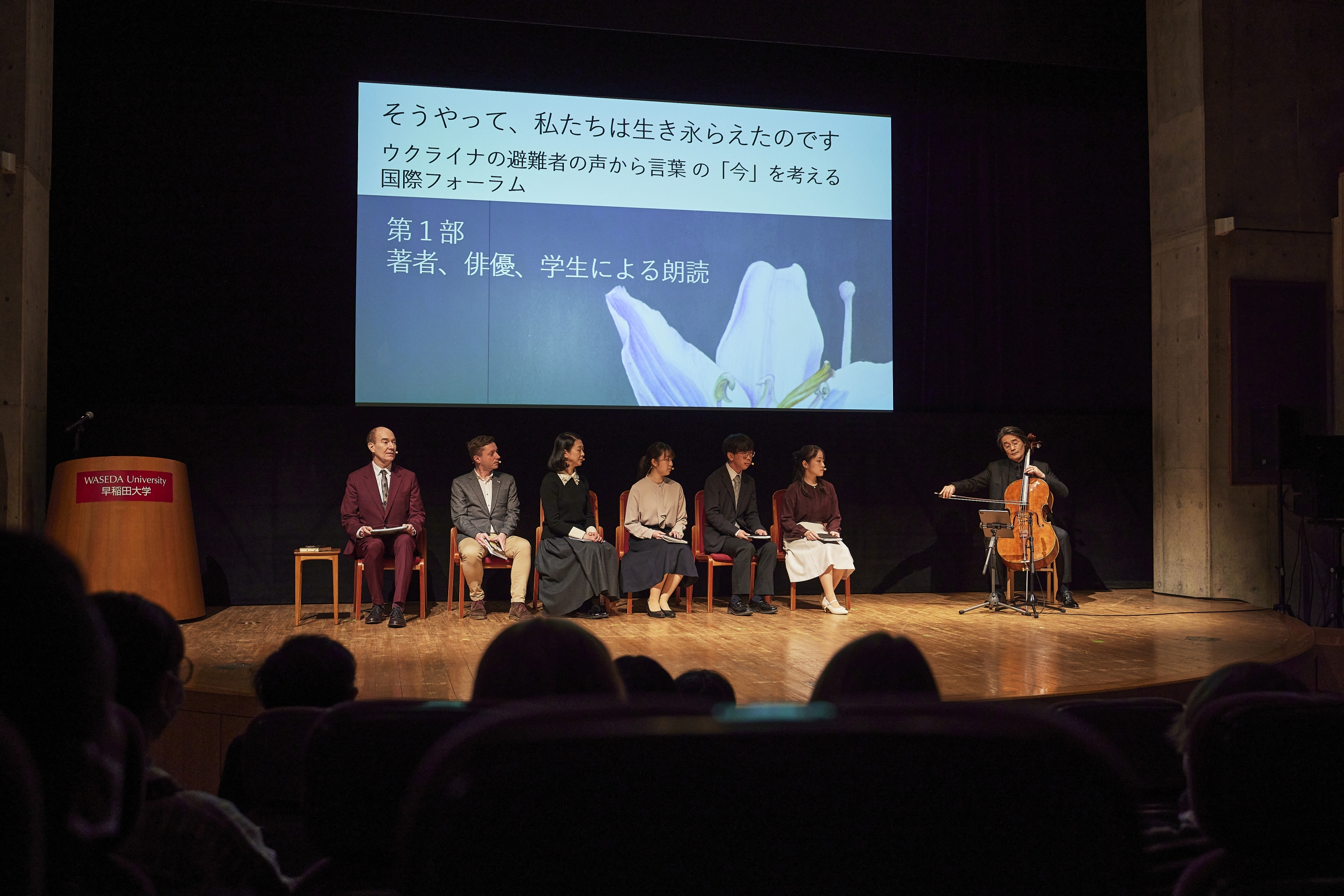
These added emotional depth to the narratives and brought the harrowing experiences of war into the auditorium, allowing attendees to connect with the stories on a deeply personal level. This method underscored the power of multisensory engagement in amplifying the impact of personal narratives.
A Deep Dive into The Dictionary of War
The program explored the organizational philosophy behind The Dictionary of War, which Slyvynsky presented not just as a book, but also as a social project with the goal of narrating the story of the crisis in Ukraine from a collective point of view. He arranged the testimonials in alphabetical order without bias or hierarchy, highlighting the idea that every narrative is as significant as the next, regardless of its content. This format fosters a more extensive discussion about the value of poetry, oral history, and memory in cultivating empathy and understanding. It underscores that every narrative, irrespective of its nature, contributes significantly to the collective memory and understanding of the crisis.
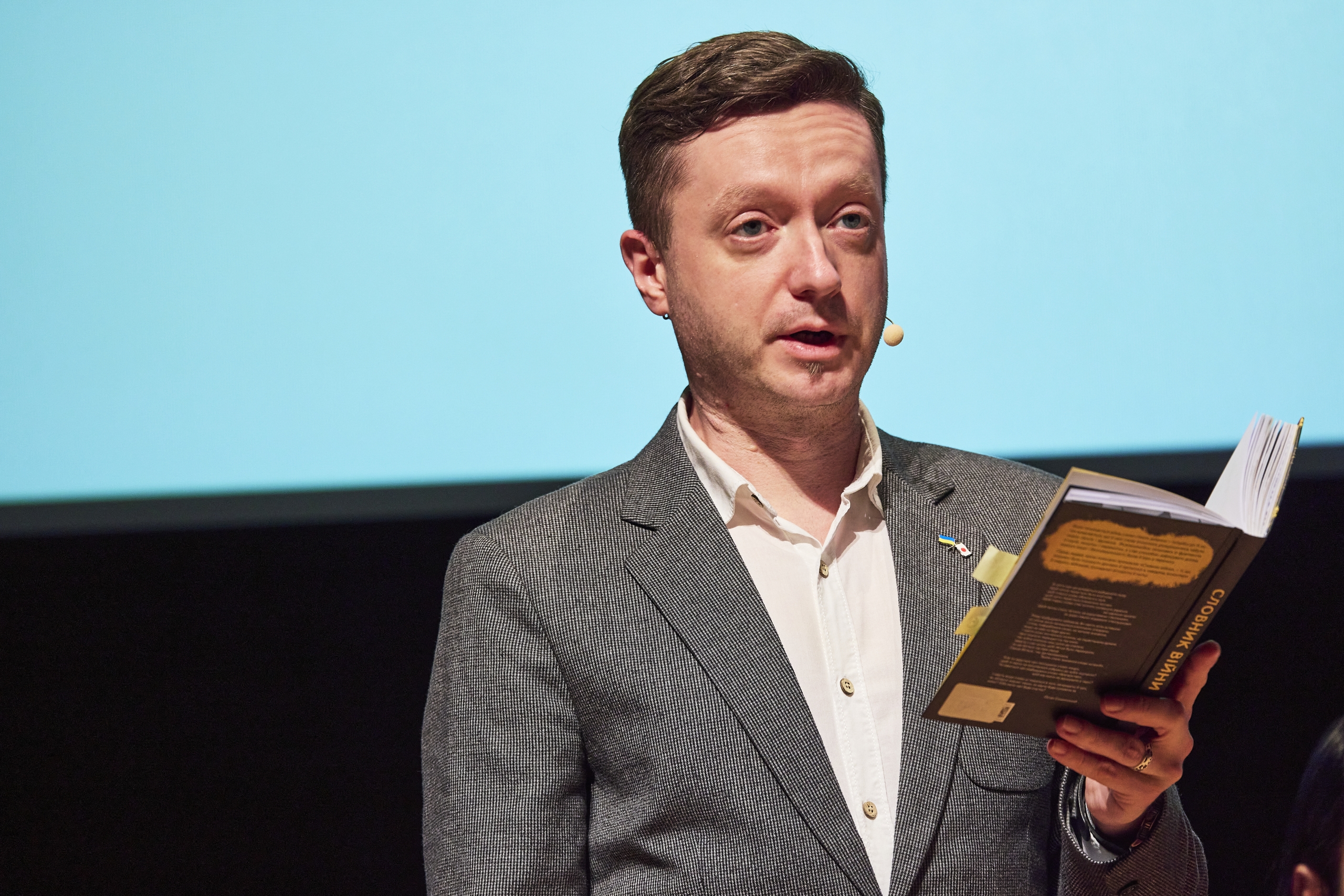
In one of the roundtable discussions, Slyvynsky referred to the project as a translation not only between languages but also from experience to experience, highlighting the spontaneity at the core of capturing these stories. This approach revealed the project’s aim to document reality and provide a testament that might aid future generations in navigating similar crises.
Student Dialogues and Reflections
A dialogue session with seven students from Ukraine, Malaysia, and Japan offered varied perspectives on war’s impact. The war’s alteration of their perception of beauty and the essence of life became a central theme, as they grappled with the impermanence of their surroundings and the need to adapt to new realities. Their discussions revealed how war reshapes one’s existence in the present, profoundly affecting their daily lives and future outlooks. They underscored the impact of war on their perspective of beauty and the fleeting aspect of life, emphasizing how these experiences shaped their understanding of what it is to live completely in the present and embrace each moment in times of upheaval.
These dialogues painted a vivid picture of the internal and external conflicts faced by those displaced, from their practical concerns in survival situations to the philosophical and emotional reconciliations with loss and change. By focusing on these personal accounts and reflections, the forum offered a window into the resilience, hope, and shared experiences of those affected by the war, reiterating the importance of dialogue and storytelling in the process of healing and understanding.
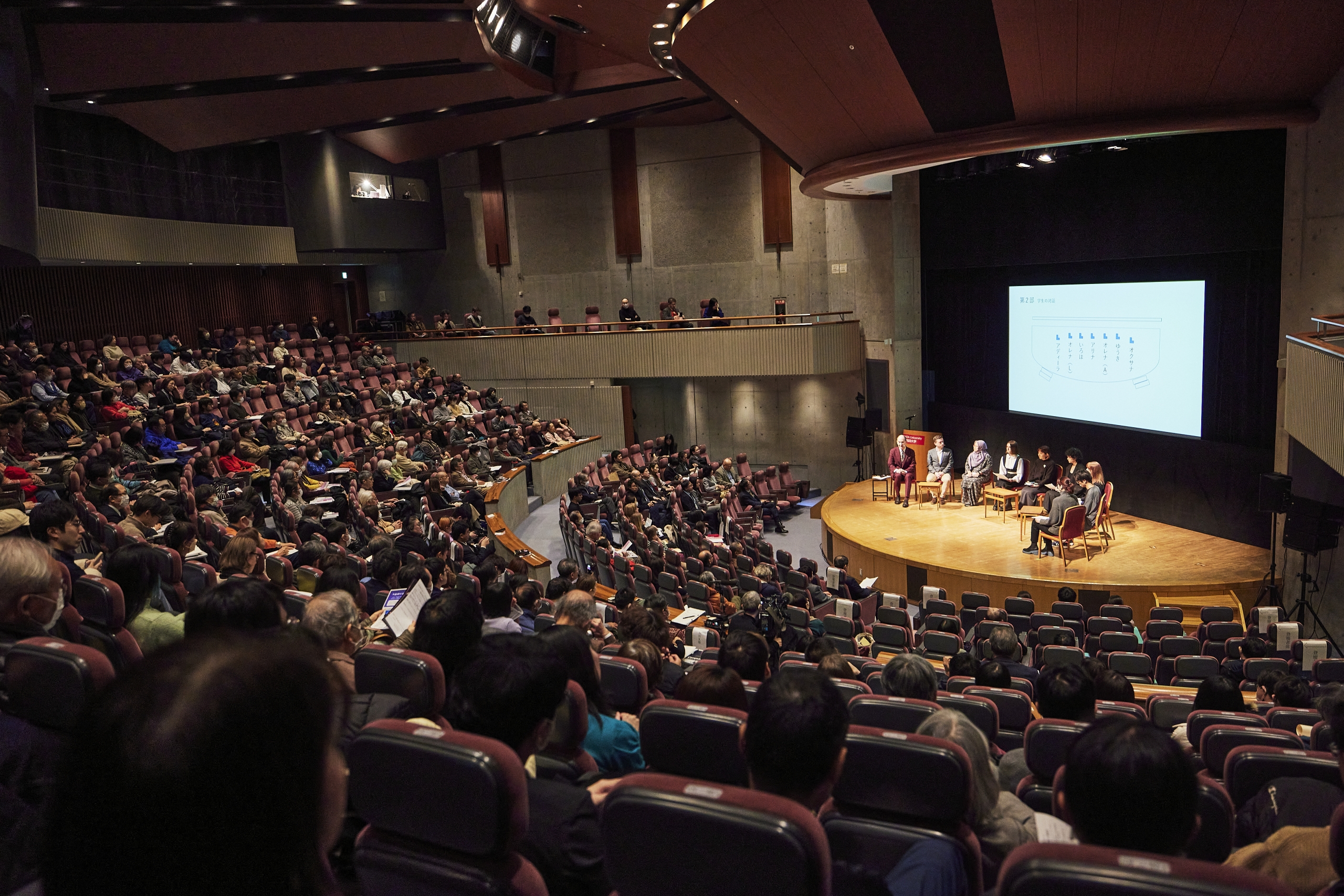
Insights on War’s Narrative from Waseda’s Scholars
As the forum progressed, the discussion transitioned to a session with Waseda University’s scholars, who provided their academic perspectives on the narratives of war. The panel included author Slyvynsky and Professors Hiromi Komori and Toshiyuki Horie, facilitated by Campbell. They explored the intricacies of narrating personal experiences in times of conflict and the role such accounts play in the broader tapestry of history. The conversation highlighted the reality that these individual stories, while deeply personal, are also part of a collective human experience, resonating with universal themes of endurance and adaptation.
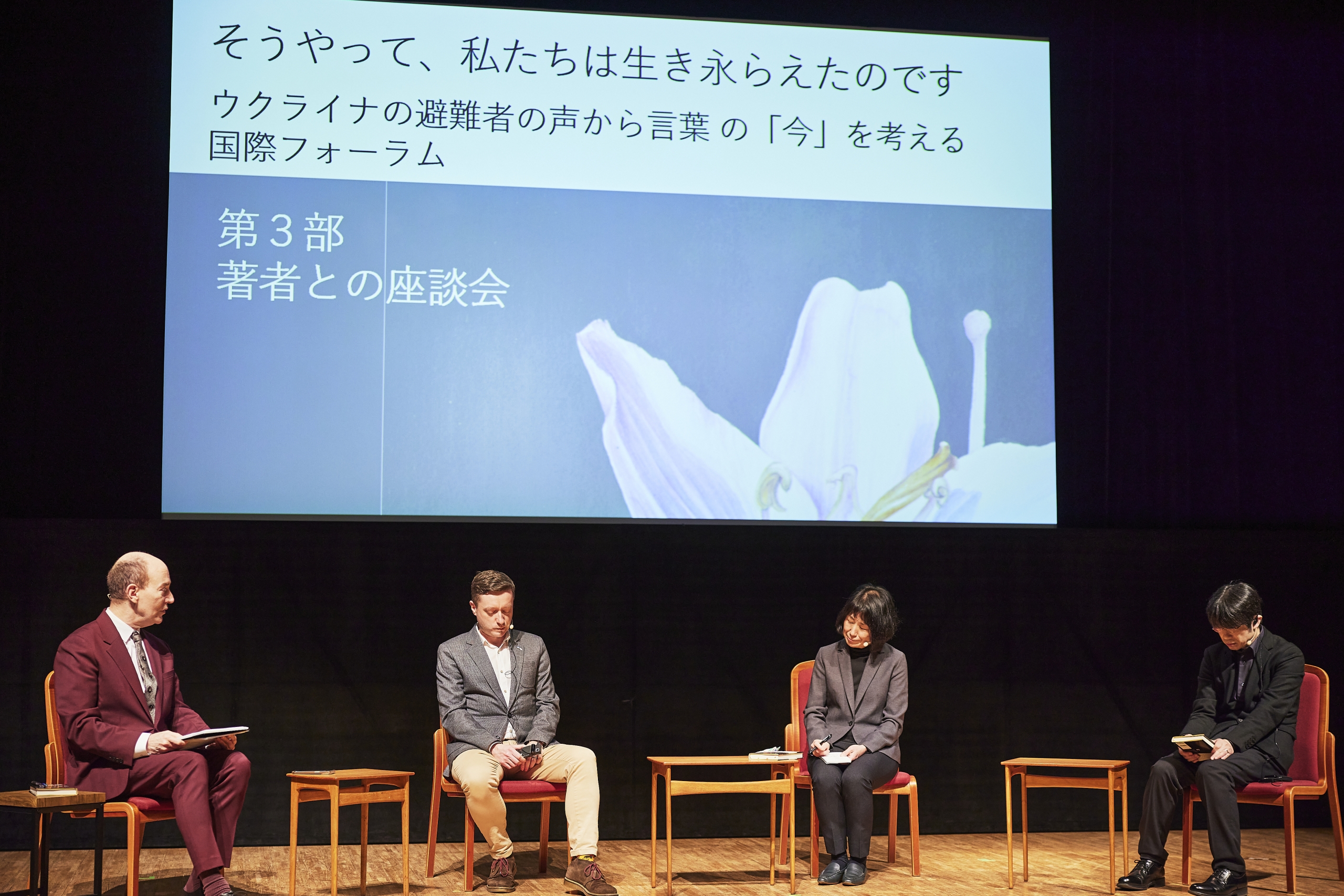
A meaningful anecdote shared by Mr. Slyvynsky regarding the role of social media in war featured the session. He recounted how a Ukrainian poet’s immediate response to shelling—posting a poem on Facebook—galvanized a community, garnering a wave of supportive comments. This instance underscored the crucial role of poetry and social platforms in raising awareness and fostering a sense of unity and support among those touched by the conflict.
Closing
The forum at Waseda University not only amplified the voices of Ukrainian refugees but also celebrated the resilience of the human spirit in the face of adversity. Through literature, personal narratives, and thoughtful dialogue, it highlighted the vital role of storytelling in bridging cultural divides, documenting history, and facilitating healing. Attendees left with a renewed appreciation for the complexities of the human condition and the unifying power of shared stories in fostering dialogue and understanding amidst conflict and displacement.
This event demonstrates the transforming power of literature and discourse in navigating the challenges of war, displacement, and the search for identity and community in the most difficult times. It accentuates the significance of creating spaces where the voices of those affected by conflict can be heard, understood, and appreciated, fostering a worldwide community of empathy, resilience, and shared humanity.
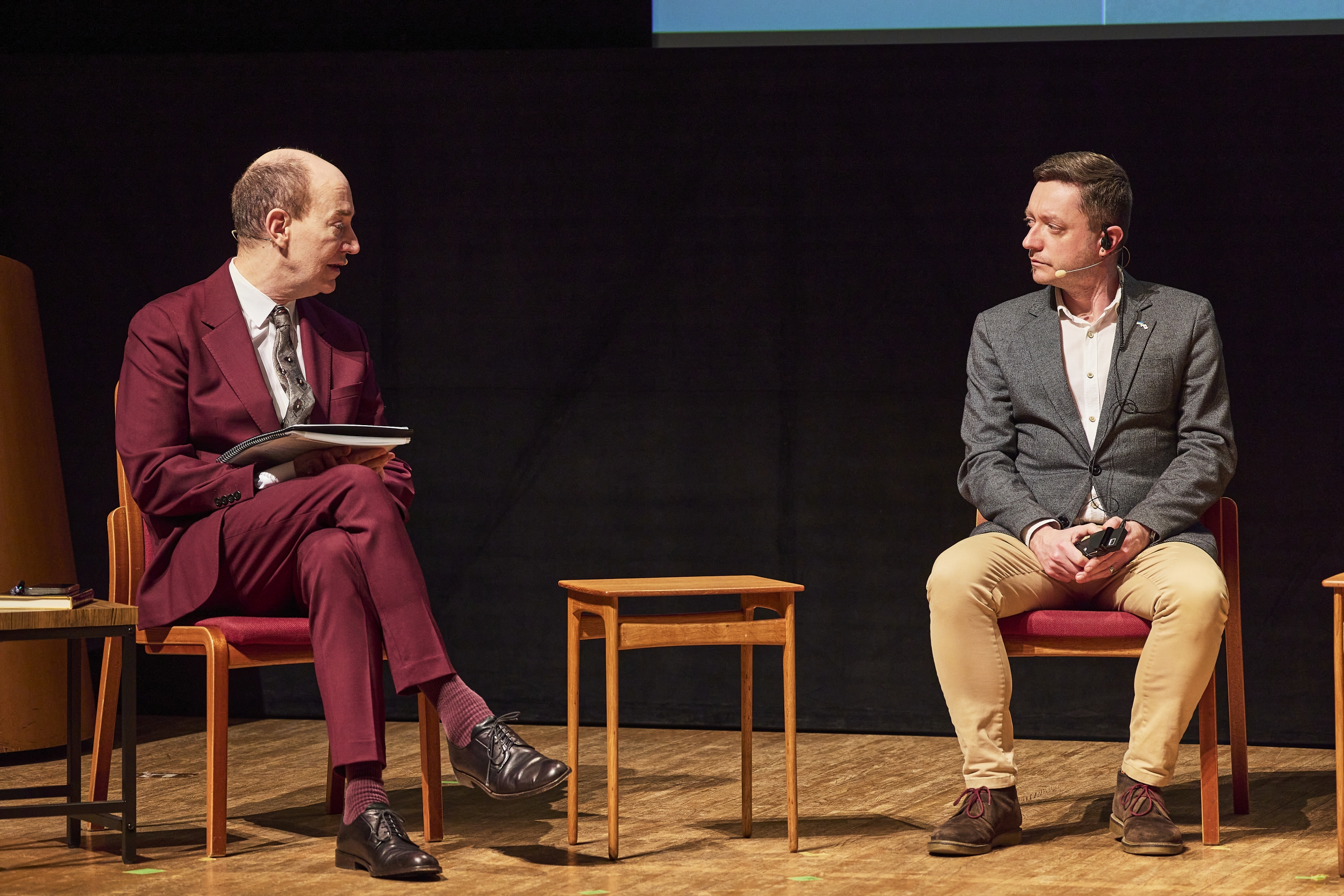
*This article was written by the following Student Contributor:
Seungjae Bae
School of International Liberal Studies

